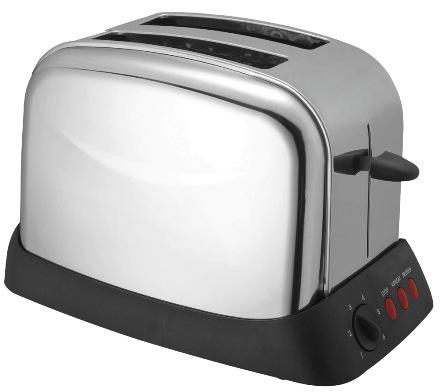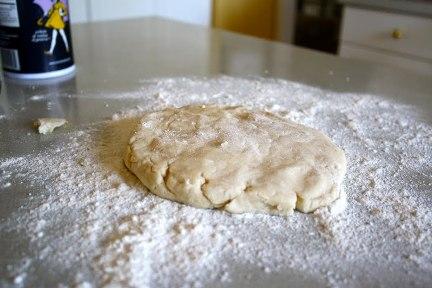
Gluten-free and confused about cross-contamination? Contemplating crossing off all food in an effort to avoid cross-contamination?? Wishing I’d stop alliterating? Help is at hand …
What Exactly Is Cross-Contamination?
Cross-contamination happens when gluten particles are still entering your system either directly or indirectly. This is despite you following a gluten-free diet.
Gluten is a nasty little bugger. Particles can easily be floating in the air or transferred onto door handles or sports balls. Wheat particles can stay airborne for a number of hours, and you risk contaminating your work surfaces, utensils and uncovered gluten-free food. Depending on your sensitivity, you can be eliciting the same reactions you were when you were directly eating gluten-based foods.
5 Tips To Avoid Cross-Contamination
Here’s some little tips to help you along your way:
1. Avoid The Deep Fryer

Changes are the deep fryer has been used for gluten products – think anything crumbly that has been battered (fish, squid rings, hotdogs, donuts, croquettes … well you get the idea!). When those wheat-based crumbs drop off, they stay in the oil. Deep frying in the same oil quickly increases your changes of ingesting some in your gluten-free eats.
One of the gluten-free favs when eating out is good old fried chips, but alas, check with the kitchen if other breaded foods are fried in the same oil before committing.
2. Use A Seperate Toaster

Yup, if you’re a gluten-free toast fiend then time to splash out and purchase your very own toaster. Just like the deep fryer, a toaster is a hive of crumbs which is likely to pick up wheat-based leftovers and add them to your special bread.
If you’re thinking of grilling your gluten-free bread, then make sure it’s not resting directly on the grill where other wheat-based products might have been.
3. Get Your Own Spreads

Got a member of your household who leaves a little pile of crumbs in the butter or the jam? Then it’s time you got your own spreads. It’s so easy to get those crumbs on your gluten-free food without even noticing. Someone buttering their toast and re-dipping their knife into the peanut butter and leaving a little bit of wheat behind just for you!
4. Wash Your Cutting Board, Your Utensils, Your Grill … Well …. Everything!

Sharing a cutting board in your house? If it’s not cleaned properly then there may be gluten particles left behind just waiting to jump on your food when you start using it. Same goes for your utensils, your sifter, your baking trays … and so on it goes. They need a decent scrub, not a quick wipe with the cloth.
This goes for commercial kitchens as well. If your sushi is prepared on the same board where they were cutting the fake crabmeat (made from wheat), using mayonnaise, or those weird little deep-fried crumbed pieces of meat, you’re in trouble.
I watched someone grill meat on the BBQ the other night which had a marinade on it which I was pretty sure contained gluten. Then the next piece of meat (unmarinated) went on the grill. “Cross-contamination!” I just managed not to scream!!
See more here:
- Top 5 best gas grills under $200
- Top 5 best gas grills under $300
- List of 5 best 2 burner gas grills
5. Only Buy Products Produced In A Strictly Gluten-Free Environment

Think of a floury bakery and all the little particles floating in the air. Now think of that floury bakery making your gluten-free products? Doesn’t give you a sense of comfort does it?
To improve your chances of avoiding cross-contamination, seek out a fully gluten-free cafe or restaurant, and only buy gluten-free products which are wrapped. That way you at least hope they’ve been packaged at source and not been sitting around absorbing gluten.
And Finally … Keep Calm And Carry On!

It’s easy to get paranoid about cross-contamination and let’s face it …. the majority of us prepare food in a kitchen shared by gluten eaters, eat out, and buy packaged food (in limitation! in limitation!) so it’s near impossible to totally avoid cross-contamination.
Gluten is a natural forming protein in food and you will know yourself your level of sensitivity. Do you react if you touch a fridge handle someone just used after eating their sandwich? Or did your teammates eat sandwiches at half-time and not wash their hands before playing ball and you got sick? In that case, be hyper-vigilant.
If you’re not as sensitive then slowly have a think about how you can improve your chances of avoiding cross-contamination. Think about taking some home-baked muffins to work for your morning coffee, rather than buying the gluten-free muffin at the cafe down the road. Or ask at the sushi house if they’re aware of gluten and how they’re preparing their sushi. Make a decision based on their response.
Just a little bit of awareness can help you reduce and control your symptoms. Remember, as George Dennison Prentice said “What some call health, if purchased by perpetual anxiety about diet, isn’t much better than tedious disease.”
Eat, drink and be merry … it’s great for your digestion!
